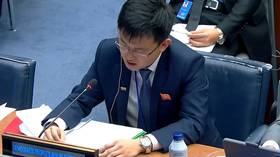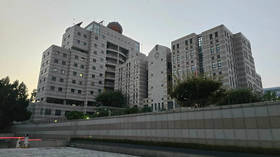North Korea responds to Russia troop deployment claims

North Korea has rejected accusations that it has sent troops to Russia to be deployed in the Ukraine conflict, dismissing the claims as an attempt to tarnish Pyongyang’s image.
Last week, Ukrainian leader Vladimir Zelensky accused North Korea of sending weapons and military personnel to Russia to take part in the hostilities. Later, South Korea also sounded the alarm over Pyongyang’s alleged movement of troops into the conflict zone, summoning the Russian ambassador to Seoul and demanding that Moscow “stop relevant cooperation” with the North.
Kremlin spokesman Dmitry Peskov has dismissed speculation that the North Korean military was taking part in hostilities with Ukraine as a “bogus story,” later adding that Moscow and Pyongyang “are developing relations in all areas.” He also recalled that the Pentagon had been unable to confirm the North Korean deployment, referring to earlier comments by US Defense Secretary Lloyd Austin.
Speaking at the UN General Assembly session on disarmament and international security on Monday, a North Korean representative dismissed the allegations. “As for the so-called military cooperation with Russia, my delegation does not feel any need to comment on groundless and stereotype rumors aimed at smearing the image of the DPRK and undermining the legitimate friendly and cooperative relations between sovereign states,” the representative said.
The North Korean diplomat added that the “so-called arms transfers between sovereign states is totally incompatible with this thematic debate.”
After the start of the Ukraine conflict, Russia and North Korea deepened their already close ties dating back to the Soviet era. Moscow and Pyongyang signed a treaty in June to upgrade their relations to a “comprehensive strategic partnership,” stipulating that if one side is invaded, the other “shall provide military and other assistance with all means in its possession without delay.”
Last week, Russian President Vladimir Putin formally asked parliament to ratify the landmark document.













